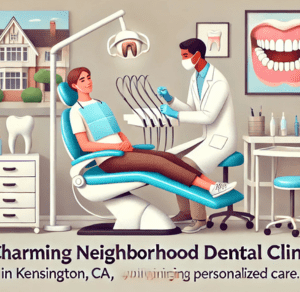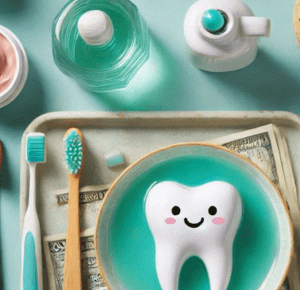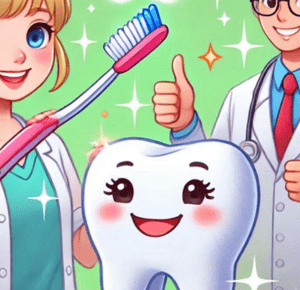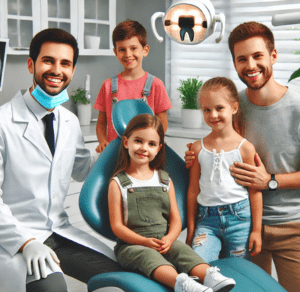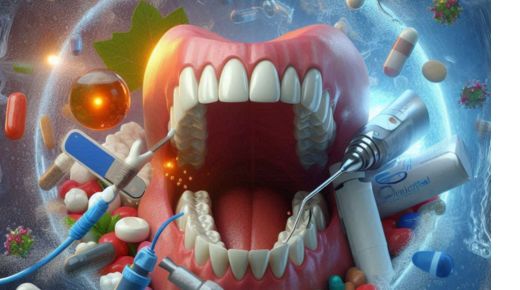
Pocket irrigation and antibiotics are two distinct treatments used to combat periodontal infections, a leading cause of tooth loss and systemic health issues. While pocket irrigation targets the physical removal of bacteria and debris from gum pockets, antibiotics systematically eliminate bacterial infections. But can these treatments be used in tandem to enhance outcomes? Research suggests that combining pocket irrigation with antibiotics may hold the key to more effective periodontal disease management. This approach has sparked interest among dental professionals seeking to optimize treatment strategies and improve patient results.
In this article, Aurora’s gentle family dentist delves into the relationship between pocket irrigation and antibiotics, exploring their benefits, potential synergies, and limitations to determine if they truly work together.
Understanding pocket irrigation
Pocket irrigation, also known as periodontal irrigation, involves flushing the gum pockets with antimicrobial solutions to reduce bacterial loads and inflammation. This non-surgical procedure:
- Removes debris and bacteria from gum pockets
- Reduces pocket depth and inflammation
- Promotes healing and tissue regeneration
Understanding Antibiotics
Antibiotics are medications designed to eliminate bacterial infections. In periodontal treatment, antibiotics:
- Target specific bacteria causing infection
- Reduce bacterial loads and inflammation
- Support healing and tissue repair
Exploring the combination of pocket irrigation and antibiotics
Using pocket irrigation and antibiotics together can enhance treatment efficacy. Benefits include:
- Enhanced bacterial reduction: Combining antimicrobial irrigation with systemic antibiotics can more effectively reduce bacterial loads.
- Improved healing: Antibiotics can support tissue repair, while pocket irrigation promotes a healthy environment for healing.
- Reduced infection risk: Simultaneous treatment can minimize the risk of infection spread.
When to use combination therapy?
Combination therapy is typically recommended for:
- Severe periodontitis: Advanced cases with deep pockets and significant bone loss.
- Refractory periodontitis: Cases unresponsive to conventional treatment.
- Aggressive periodontitis: Rapidly progressing infections.
- Immunocompromised patients: Individuals with weakened immune systems.
Understanding the considerations for combination therapy
While using combination therapy consider the following factors:
- Antibiotic resistance: Overuse or misuse can lead to resistance.
- Side effects: Antibiotics can cause adverse reactions.
- Increased cost: Combination therapy may be more expensive.
- Patient compliance: Adherence to treatment regimens is crucial.
Clinical evidence to support the efficacy of combination therapy
Studies demonstrate the efficacy of combination therapy:
- A 2018 systematic review found that adjunctive antibiotics improved pocket depth reduction and clinical attachment gain.
- A 2020 randomized controlled trial showed that combination therapy reduced bacterial loads and inflammation more effectively than pocket irrigation alone.
Wrapping up
In conclusion, the combination therapy of pocket irrigation and antibiotics presents a promising approach to combating periodontal infections. By synergistically reducing bacterial loads, inflammation, and pocket depth, this dual treatment strategy can significantly improve treatment outcomes for patients with severe or refractory periodontitis. While considerations such as antibiotic resistance, side effects, and patient compliance must be carefully weighed, the clinical evidence supports the efficacy of combination therapy in achieving enhanced periodontal healing and reduced infection risk. As dental professionals continue to seek innovative solutions to optimize patient care, the strategic integration of pocket irrigation and antibiotics emerges as a valuable tool in the fight against periodontal disease, offering new hope for improved oral health and overall well-being.
FAQs
- What is the most effective antibiotic for periodontal treatment?
The choice of antibiotic depends on the specific bacteria present and patient factors.
- How long does combination therapy typically last?
Treatment duration varies, but typically the combination therapy may range from 1-3 months.
- Are there any contraindications for combination therapy?
Patients with certain medical conditions (severe kidney or liver disease), pregnancy, breastfeeding, viral infections (HIV or hepatitis) or allergies may require alternative treatments.
- Can combination therapy prevent periodontal disease?
No, but regular maintenance therapy, including pocket irrigation, can help prevent disease progression.

